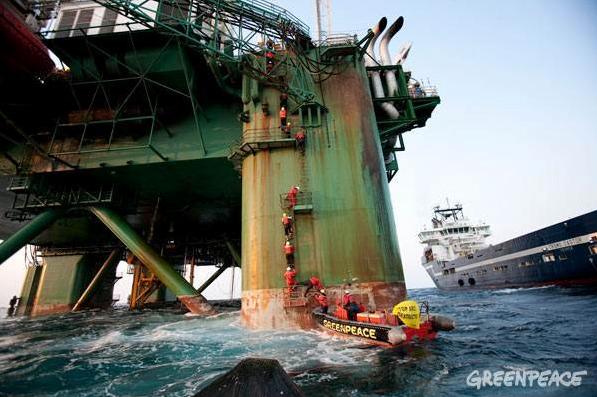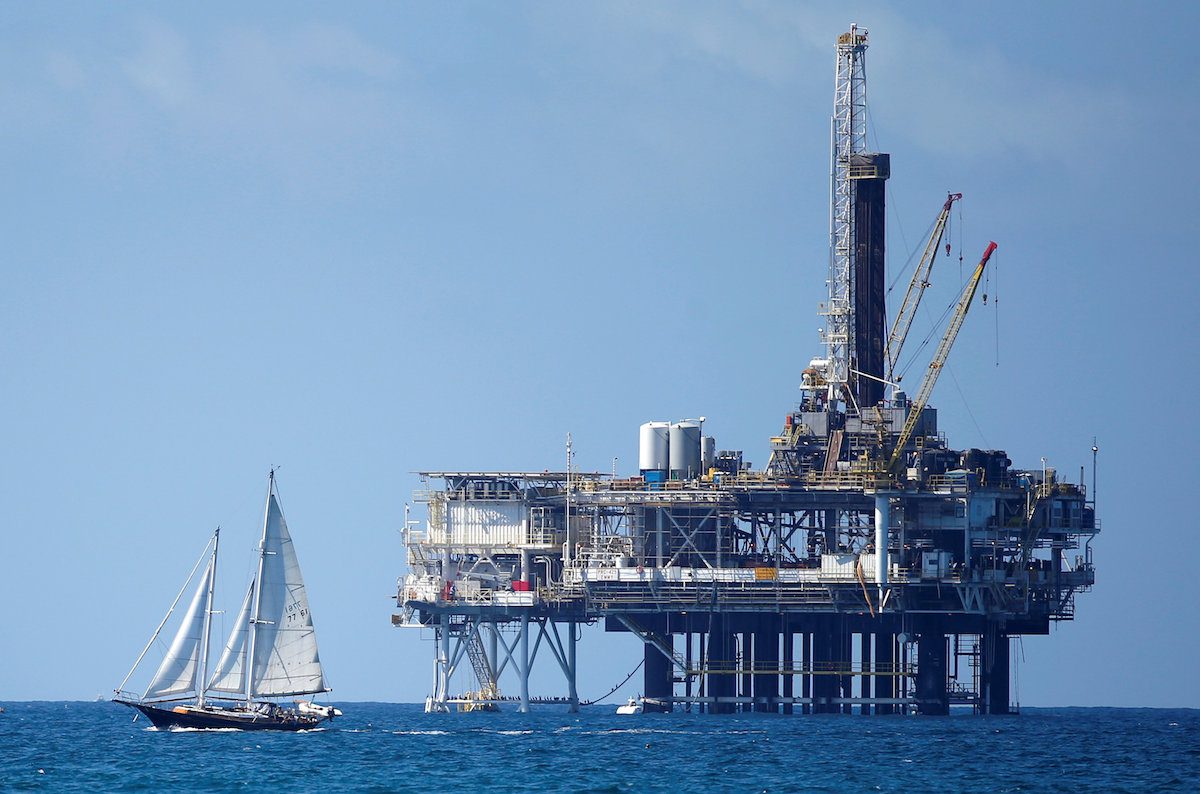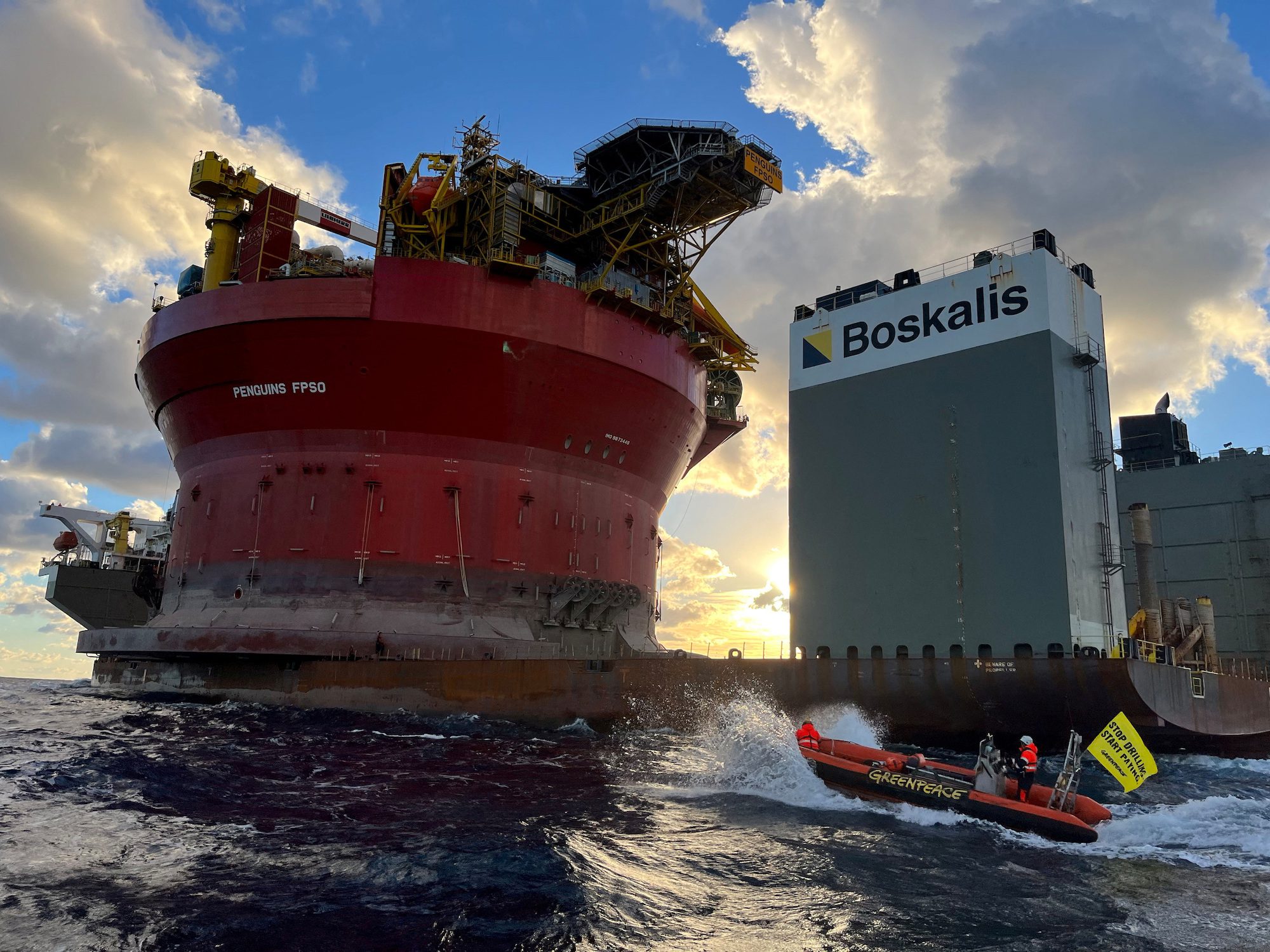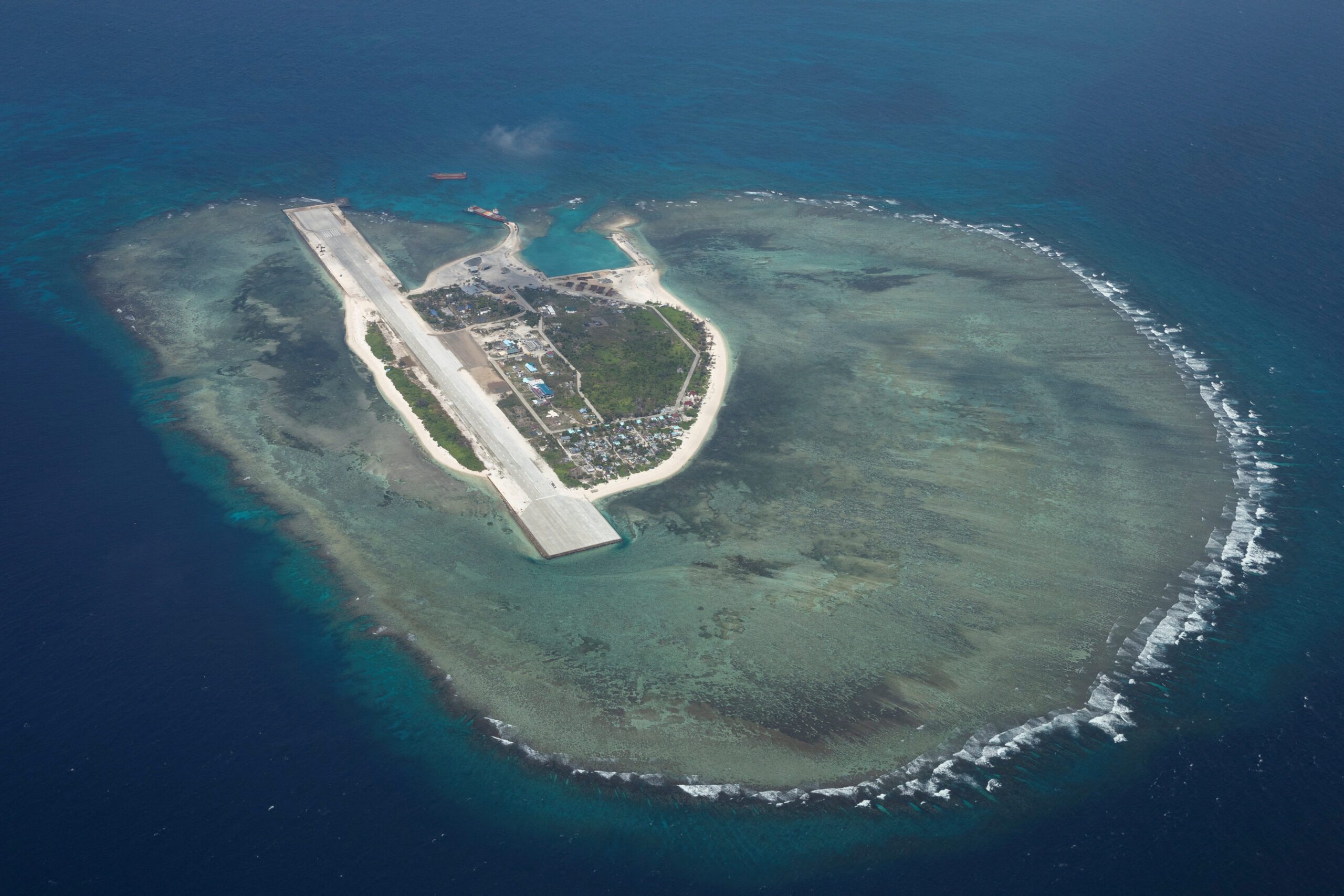Updated: June 21, 2012 (Originally published June 10, 2011)

AMSTERDAM — (Dow Jones & Co) Greenpeace activists have been barred from further disrupting oil company Cairn Energy PLC’s controversial Arctic drilling campaign offshore Greenland, after a Dutch court Thursday granted the Edinburgh-based firm a requested injunction.
Greenpeace, which said the campaign is damaging the region’s fragile ecosystem, can’t come within 500 meters of Cairn’s rigs for a period of six months, a sufficient length of time for the company to complete its exploratory drilling program this summer, the court said.
If Greenpeace defies the order, it will have to pay Cairn damages of 50,000 euros ($73,000) a day, but no more than 1 million euros in the case of multiple violations of the order. Cairn had asked the court to fineGreenpeace 2 million euros for each day its drilling activities were disrupted.
Greenpeace’s lawyer, Phon van den Biesen, said he was disappointed by the decision. However, he said the judge didn’t question whetherGreenpeace’s actions were reasonable in raising public interest and that the court had said it was remarkable that oil-spill response plans hadn’t been made public.
Cairn said in a written statement that “it respects the rights of individuals and organizations to express their views but cannot allow actions that might threaten the safety of its employees or the protesters involved.”
However, using legal action to stop Greenpeace from campaigning can backfire on energy companies, who run the risk of appearing draconian and heavy-handed. This was the experience of BP PLC in 1997 when it won an injunction stopping Greenpeace from disrupting its drilling off the west coast of Scotland.
BP ended up withdrawing a GBP 1.4 million ($2.3 million) damages claim after public opinion massed against the oil giant, which was perceived to be picking on a group of plucky activists exercising their right to protest.
Greenpeace has a long history of direct action to protest against what it regards as activities harmful to the environment.
In 1985, the organization generated international headlines when a trawler used by Greenpeace to protest nuclear-weapons testing in the Pacific Ocean was sunk by French intelligence operatives.
Oil companies have been a particular target of Greenpeace. In 1995, the group successfully forced Anglo-Dutch major Royal Dutch Shell PLC to dismantle its Brent Spar North Sea oil-storage facility on land rather than dumping it at sea.
The Arctic is regarded as one of the world’s largest untapped hydrocarbon resources, according to energy consultancy Wood Mackenzie. Cairn estimated its target reservoir could contain up to 3.2 billion barrels of oil equivalent.
The area is largely unexplored and Cairn put its chances of a commercial hydrocarbon discovery at 10% to 20%.
Cairn is the only company planning to drill in the region after disappointing results from a campaign last year. But Greenpeace has said that, if Cairn’s campaign is successful this summer, it will spark an oil rush that would devastate the fragile Arctic environment. The activist group also argued that a clean-up operation would be “all but impossible” in the region.
Cairn maintained that its drilling offshore Greenland is safe. It has the full permission of the Greenlandic authorities, who have also defended Cairn from Greenpeace’s accusations.
Prime Minister Kupik Kleist has said the drilling offshore Greenland is being carried out under Norwegian safety regulations, which he described as the strictest of any country.
Greenland’s potential oil and gas resources could also play a key part in the Arctic territory’s bid for full autonomy from Denmark, observers have said.
The region, which is still part of the Kingdom of Denmark, received self-rule status following a referendum in 2009 and signed an agreement with the Danes ceding it more control over its natural gas, gold and diamond reserves.
– By Flemming E. Hansen, Dow Jones & Company
Editorial Standards · Corrections · About gCaptain

 Join The Club
Join The Club











